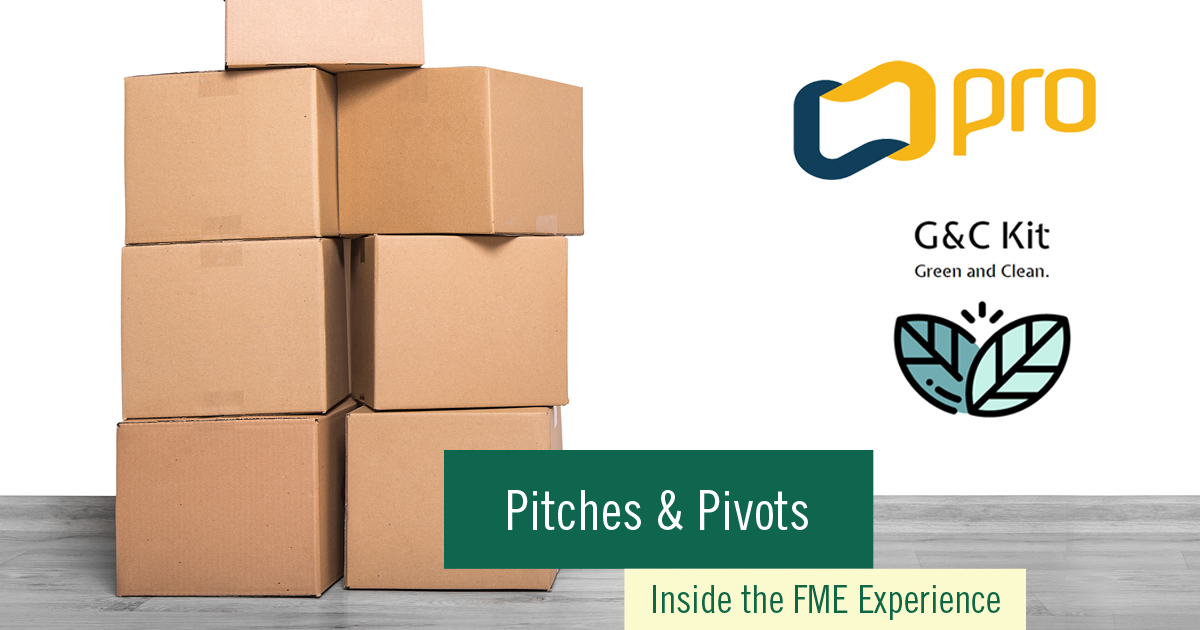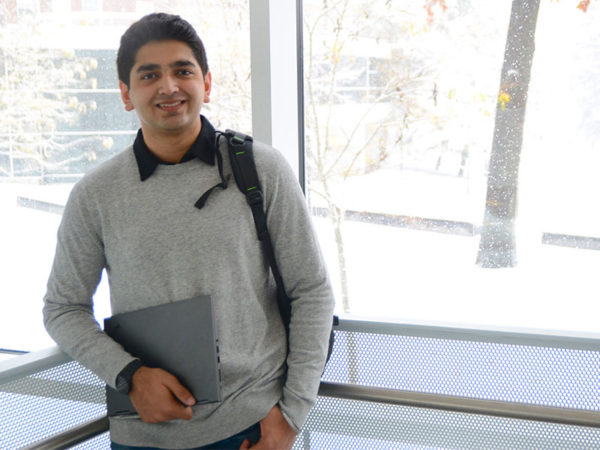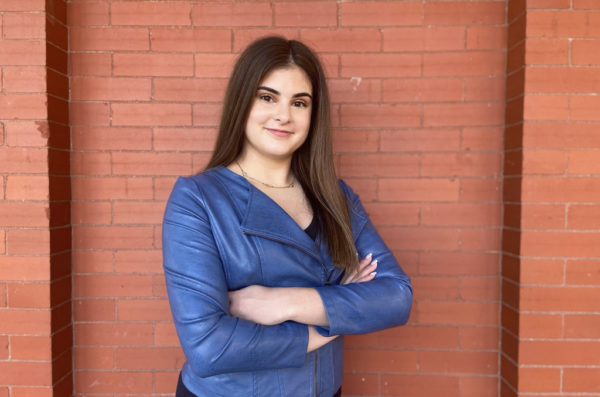Product Problems, Inventory Issues, and Mailing Mishaps

This is the fifth installment of an ongoing series about first-year students’ journey through the Foundations of Management and Entrepreneurship (FME) course.
The first sale happened quickly, and it came from an unexpected place.
Sophia Pantos ’24 and her teammates had just launched their business for Foundations of Management and Entrepreneurship, or FME as it’s commonly called, when they learned they had sold 48 units, which was half their inventory, to a marketing agency in Luanda, the capital of Angola.
“It was not anticipated,” Pantos says. “Our first customer was not part of our target market, and it was a surprising sale to say the least.”
One of the dads of the FME students does business in the area, and he had helped make the connection. Originally, the team had imagined selling to family, friends, and Babson alumni. Selling to a marketing agency halfway around the world admittedly wasn’t part of its plan. “Sometimes the market you don’t expect becomes your primary consumer base,” Pantos says.
FME students spend the school year fine-tuning business ideas and turning them into reality. Pantos is part of a business called PRO, which stands for Portable Remote Office and sells physical backgrounds for people working or going to school remotely.
“All of the late nights, finishing reports and presentations, it was all worth it. We were all proud of one another. It couldn’t have been possible without each person.”
Sophia Pantos ’24
As part of an ongoing series, we’re telling the story of the FME experience, from the pitches and presentations to the pivots and products. In this installment, we follow the student teams as they finally begin selling their products and services. Reaching this milestone has meant a long journey, with many twists and turns. “I knew it was a marathon and not a sprint, but I didn’t anticipate it having so many curves,” Pantos says. “It is not linear by any means.”
That’s why, when the first sale in Angola was announced to the PRO team on a Webex call, no one spoke for a good 10 seconds or so. The magnitude of what they had done needed a moment to sink in. After all the work, after all the decisions and planning, they had pulled it off—they had made a sale.
“All of the late nights, finishing reports and presentations, it was all worth it,” Pantos says. “We were all proud of one another. It couldn’t have been possible without each person. Each team member played an integral part.”
Too Many Products
In FME, things often don’t go as planned.
Arya Patel ’24 is part of an FME team called G & C Kit, which sells eco-friendly shower kits. In the weeks before their launch, the team members felt like they were prepared and ready, but then came a last-minute snag courtesy of their professors. “The professors thought we were ordering too many products,” Patel says. “They thought our inventory was too high.”

The professors suggested the team renegotiate with the suppliers providing the soap, shampoo, toothbrushes, and toothpaste for its kits. That worried Patel and his fellow students. They were initially ordering enough supplies for about 250 kits, and they already felt that was a much smaller order than their suppliers were used to filling. Now, the team wanted enough for only about 75 kits.
“All our team members thought the suppliers would say no to us point blank,” Patel says. Luckily, that didn’t happen. The suppliers did increase the cost per unit, cutting into G & C Kit’s profit margin, but they agreed to the smaller order.
With that, the team was set to sell. Initially, it focused on posting to Instagram and to emailing potential customers who earlier had filled out a market survey. Sales were weak. “It is not that easy to generate sales,” Patel says. “Just putting up Instagram stories wasn’t getting us anywhere, and people already get so many emails.”
After that, the team took a more aggressive approach, personally reaching out and talking to potential customers. “We have to go out and sell as much as possible,” Patel says. For Patel, the entire school year has been leading up to this, the moment when they put their learning to the test in the real world. “The team has already done so much hard work,” he says. “This is the fun time now.”
A Late Switch
For sure, the PRO team also had its fair share of bumps along its entrepreneurial journey. For weeks leading up to its launch, it planned to sell a foldable, three-panel screen that could function as a makeshift office.
Then, however, the students realized their product would too expensive to ship due to its dimensions and weight. A decision needed to be made. “In business, you have to be adjustable,” Pantos says. “If you are rigid, that’s when businesses don’t succeed.”

With its Chinese manufacturer unresponsive due to the long New Year celebration, the PRO team switched to a different Chinese manufacturer and an entirely new product, a roll-up screen, that would be easier to ship. That screen could be customizable and still offer a professional-looking background for remote workers and students.
The PRO team scored a big win with its surprising sale to the marketing agency in Angola, which saw the roll-up screens not as a background for remote workers but as a way to display promotional posters. But the switch to the new screens soon blindsided Pantos and the team with a problem they didn’t anticipate.
That problem surfaced early one morning. Pantos woke up to find her inbox flooded with emails from her international teammates. “There were lots of exclamation points and capital letters,” she says. “The first thing I did was pick up the phone and speak to them individually.”
Turns out that PRO’s order fulfillment service in Michigan, which was supposed to mail the remaining 48 screens out to customers once they arrived from China, was now refusing to work with the student team. That’s because the packages for the new screens are a different size than what the team and the service had originally agreed to with the initial three-panel design. “We didn’t think it mattered what size the boxes were,” Pantos says.
So it goes with FME. The learning never stops. There always is another problem to solve, another obstacle to overcome. “The product is on its way,” Pantos says. “We just need to figure out where it’s going to go.”
Pitches and Pivots: Our FME series
Part 1: A Babson Rite of Passage Begins
Part 2: Think Big, Observe, and Create Solutions
Part 3: 3 Minutes, 3 Slides, and the Fate of a Business Idea
Part 4: Preparing for Launch: It’s All About Manufacturing
Part 5: Product Problems, Inventory Issues, and Mailing Mishaps (above)
Part 6: The Final Ledger: Closing Time in FME
Posted in Community






